 by our College Data Analytics Team
by our College Data Analytics TeamHere, you'll find out more about the major, including such details as the number of graduates, what degree levels are offered, ethnicity of students, average salaries, and more. We've also included details on how Rice ranks compared to other colleges offering a major in economics.
Go directly to any of the following sections:
Rice is in the top 10% of the country for economics. More specifically it was ranked #30 out of 407 schools by College Factual. It is also ranked #1 in Texas.
| Ranking Type | Rank |
|---|---|
| Best Economics Master’s Degree Schools | 19 |
| Best Economics Graduate Degree Schools | 22 |
| Best Economics Schools | 30 |
| Best Economics Bachelor’s Degree Schools | 30 |
During the 2021-2022 academic year, Rice University handed out 75 bachelor's degrees in economics. This is a decrease of 26% over the previous year when 101 degrees were handed out.
In 2022, 28 students received their master’s degree in economics from Rice. This makes it the #46 most popular school for economics master’s degree candidates in the country.
In addition, 3 students received their doctoral degrees in economics in 2022, making the school the #97 most popular school in the United States for this category of students.
The median salary of economics students who receive their bachelor's degree at Rice is $78,814. This is higher than $51,722, which is the national median for all economics bachelor's degree recipients.
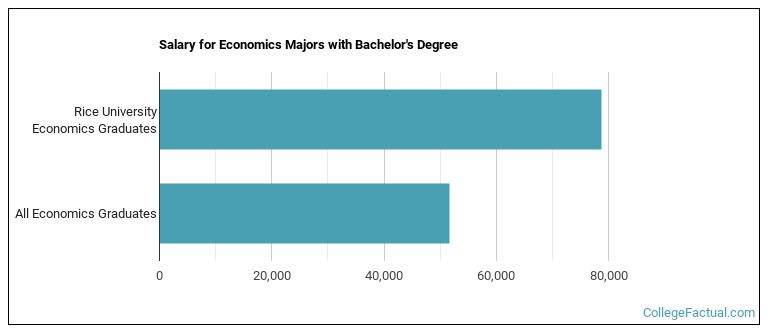
In 2022-2023, the average part-time undergraduate tuition at Rice was $2,384 per credit hour for both in-state and out-of-state students. Information about average full-time undergraduate tuition and fees is shown in the table below.
| In State | Out of State | |
|---|---|---|
| Tuition | $57,210 | $57,210 |
| Fees | $918 | $918 |
| Books and Supplies | $1,400 | $1,400 |
| On Campus Room and Board | $15,900 | $15,900 |
| On Campus Other Expenses | $2,850 | $2,850 |
Learn more about Rice tuition and fees.
During the 2021-2022 academic year, 75 students graduated with a bachelor's degree in economics from Rice. About 68% were men and 32% were women.
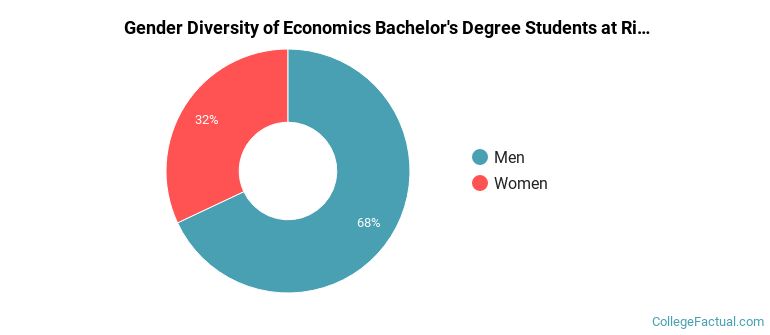
The following table and chart show the ethnic background for students who recently graduated from Rice University with a bachelor's in economics.
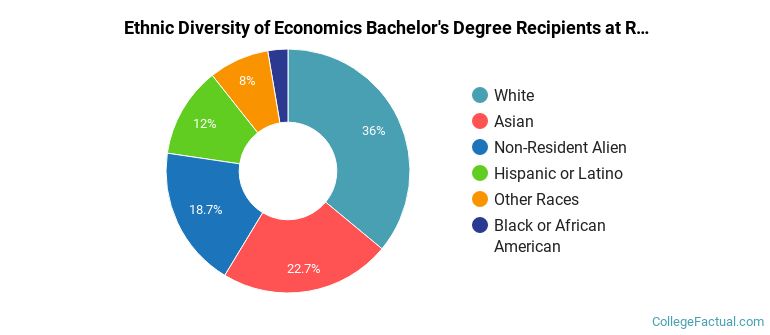
| Ethnic Background | Number of Students |
|---|---|
| Asian | 17 |
| Black or African American | 2 |
| Hispanic or Latino | 9 |
| White | 27 |
| Non-Resident Aliens | 14 |
| Other Races | 6 |
Rice does not offer an online option for its economics bachelor’s degree program at this time. To see if the school offers distance learning options in other areas, visit the Rice Online Learning page.
In the 2021-2022 academic year, 27 students earned a master's degree in economics from Rice. About 19% of these graduates were women and the other 81% were men.
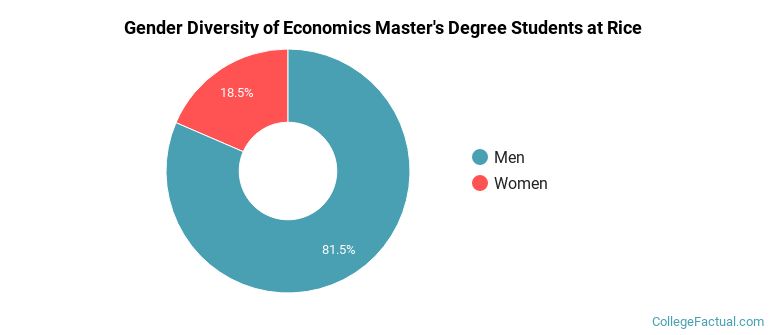
The following table and chart show the ethnic background for students who recently graduated from Rice University with a master's in economics.
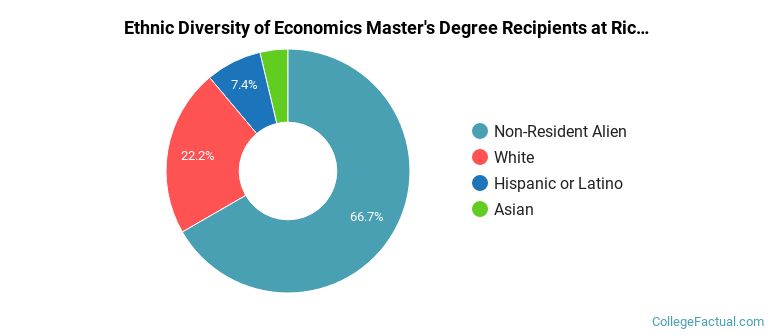
| Ethnic Background | Number of Students |
|---|---|
| Asian | 1 |
| Black or African American | 0 |
| Hispanic or Latino | 2 |
| White | 6 |
| Non-Resident Aliens | 18 |
| Other Races | 0 |
Take a look at the following statistics related to the make-up of the economics majors at Rice University.
| Related Major | Annual Graduates |
|---|---|
| Political Science & Government | 44 |
| Sociology | 40 |
| International Relations & National Security | 25 |
| Anthropology | 17 |
More about our data sources and methodologies.